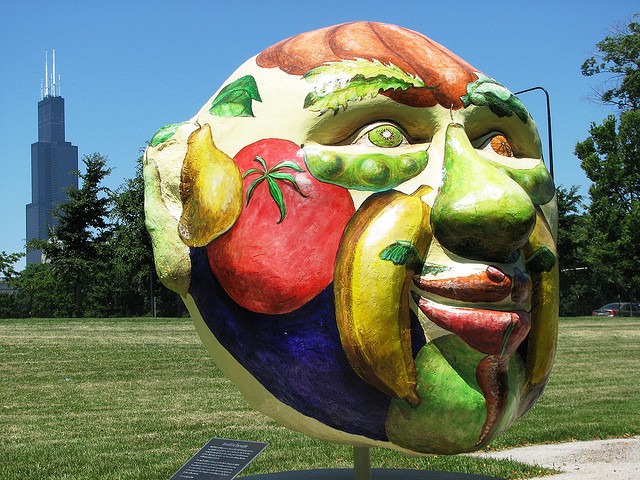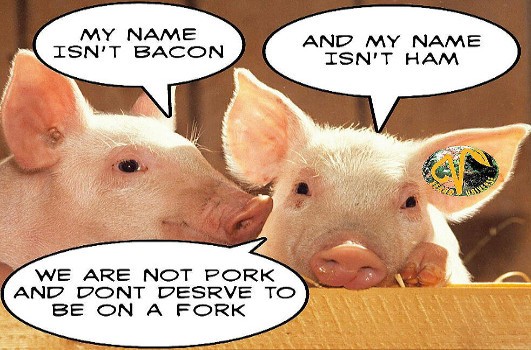Going vegan might very soon not only remain an excellent choice one could make but a necessity nobody can bypass in the near future. This development could be due among many other reasons to the hazardous impact of increase in global warming. Today, global warming is being considered to be one, if not the most critical issue of mankind. In a report written by Noam Mohr called the “Earth Save Report“, it was indisputably proved that the most effective measures people can take to decrease global warming is turning to a vegetarian, or even better, vegan diet. As a matter of fact, there is no better way to get control of this worldwide issue. A year later after this report, the United Nations published a report saying that factory farming exceeds the outlet of greenhouse gases than the entire automobile industry altogether. There are many other reasons to turn green which are also closely related to the environment. If these steps are not taken voluntarily, they will be taken of necessity for lack of option in the long run.
“Reduce global warming
- Global warming poses one of the most serious threats to the global environment ever faced in human history. Yet by focusing entirely on carbon dioxide emissions, major environmental organizations have failed to account for published data showing that other gases are the main culprits behind the global warming we see today. As a result, they are overlooking the fact that the single most important step an individual can take to reduce global warming [faster than any other means] is to adopt a vegetarian diet.
- In its 2006 report, the United Nations said raising animals for food generates more greenhouse gases than all the cars and trucks in the world combined.
Avoid excessive CO2 production
- According to the UN Report, when emissions from land use and land use change are included, the livestock sector accounts for 9 per cent of CO2 deriving from human-related activities, but produces a much larger share of even more harmful greenhouse gases.
Reduce methane/nitrous oxide production
- Cows and sheep are responsible for 37% of the total methane (23 times as warming as CO2) generated by human activity. With methane emissions causing nearly half of the planet’s human-induced warming, methane reduction must be a priority
- The livestock industry generates 64 per cent of ammonia, which contributes significantly to acid rain.
- The livestock industry also generates 65 per cent of human-related nitrous oxide, which has 300 times the Global Warming Potential (GWP) of CO2. Most of this comes from manure.
- In addition to having the advantage of immediately reducing global warming, shifting away from methane-emitting food sources is much easier than cutting carbon dioxide:
- First, greenhouse gas reductions through a vegetarian diet are limitless. In principle, even 100% reduction could be achieved with little negative impact. In contrast, similar cuts in carbon dioxide are impossible without devastating effects on the economy. Even the most ambitious carbon dioxide reduction strategies fall short of cutting emissions by half.
- Second, a shift in diet can lower greenhouse gas emissions much more quickly than shifts away from the fossil fuel burning technologies that emit carbon dioxide. The turnover rate for most ruminant farm animals is one or two years, which means that decreases in meat consumption would result in an almost immediate drop in methane emissions. The turnover rate for cars and power plants, on the other hand, can be decades. Even if cheap, zero-emission fuel sources were available today, they would take many years to build and slowly replace the massive infrastructure our economy depends upon today.
- Similarly, unlike carbon dioxide which can remain in the air for more than a century, methane cycles out of the atmosphere in just eight years. Therefore, lower methane emissions translate to cooling of the earth quickly.
Save large amounts of water
-
Estimates of the water required to produce a kilo of beef vary, from 13,000 liters up to 100,000 liters . Whichever figure you use, the damage is plain when you consider that the water required to produce a kilo of wheat is somewhere between 1,000-2,000 litres.”
To read the rest of the article, check it out on the original source over at Downtoearth.
Image Source: John LeGear








My Pharmacy my Garden
You are the wisest “doctor” I have met!
Thank you we all need to maintain our own Health Prevention is the Key here is to our Health
Renate Wobig Yes, you are perfectly right!
Beautiful ! <3